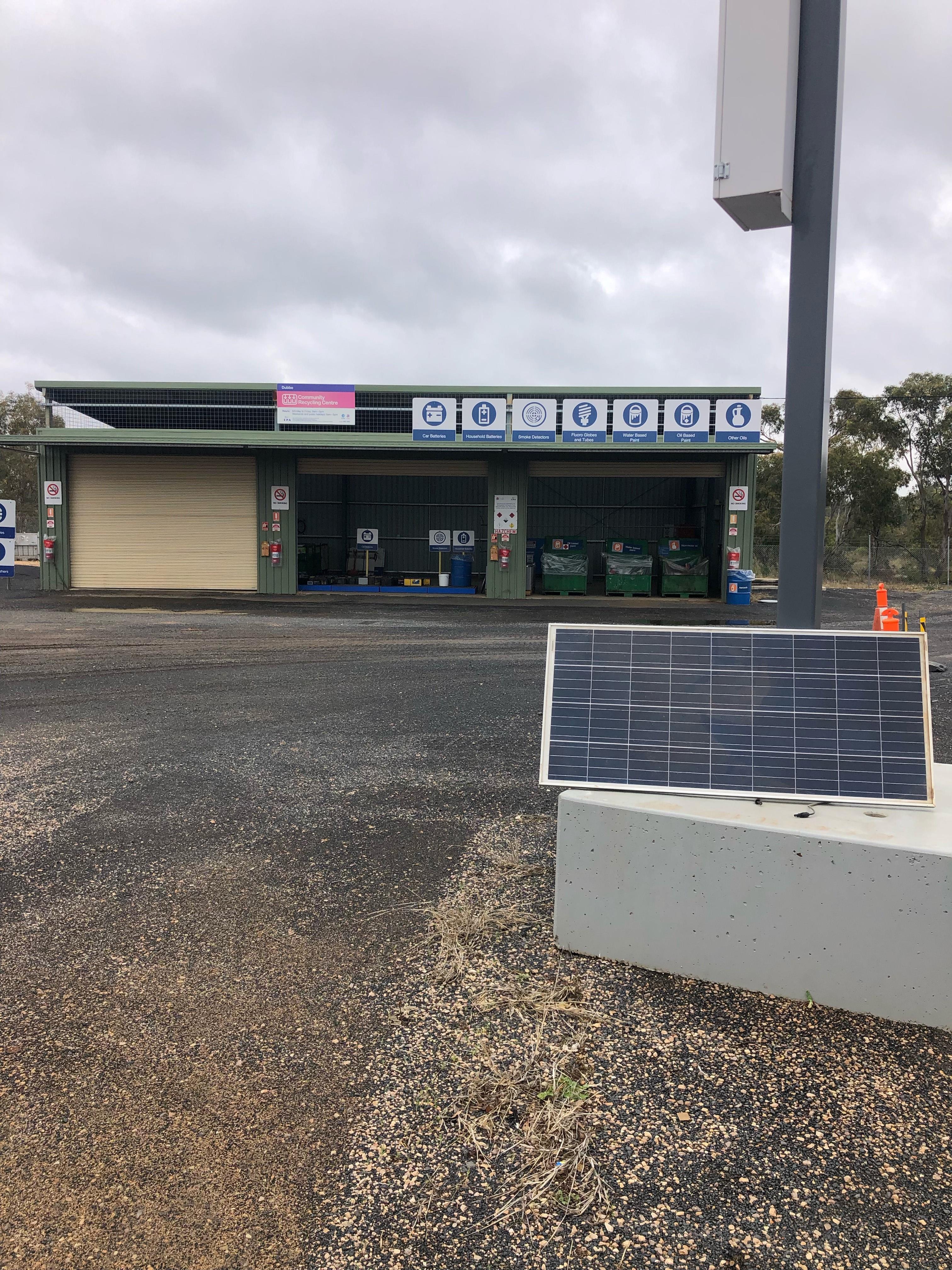Dubbo Regional Council (DRC) has been selected as the pilot site for a first-of-its-kind project, where second hand (serviceable) solar panels are given a new lease on life. While solar panels are a popular way to save energy and promote better outcomes environmentally, there are unknowns around what happens to the solar panels when they are removed and replaced. DRC has partnered with Blue Tribe, CSIRO, and the NSW Department of Planning, Industry & Environment’s Sustainability Advantage to pilot an innovative solution to this emerging waste problem. This project has been funded under the NSW Environment Protection Authority’s Circular Solar Grants Program.
“Dubbo Regional Council has been successful in its joint application to participate in the Second Life Solar project, where we are exploring the reuse of solar panels to create solar gardens, rather than dispose of the panels into landfill. Our main role is to host the solar garden at the Whylandra Waste and Recycling Centre,” said DRC’s Manager Resource Recovery & Efficiency, John Wisniewski.
National Recycling Week runs 8 – 12 November this year, and DRC is encouraging residents to think of ways they can recycle in their own homes. With Council participating in this trial to reuse solar panels, it’s hoped that residents will one day be able to reuse solar panels in their own homes or businesses.
“By participating in this trial, we are boosting the service life of solar panels, and increasing the uptake of renewable energy, helping to meet Council’s 50% renewable energy target. There are more than 2.8 million small-scale solar systems installed Australia-wide, and Dubbo is the second largest installer of small-scale solar systems in NSW. So if we can find extended uses for our solar panels, we’ll be reducing our overall environmental footprint,” said Mr Wisniewski.
While the current volume of solar panel and associated battery waste is quite small, a scoping study commissioned by the Department of Planning, Industry & Environment predicts that by the year 2025, there will be between 3,000 – 10,000 tonnes per year going to landfill, and 40,000 – 71,000 tonnes by 2035. This is why DRC wants to play a pivotal role in reusing solar panels wherever possible. Blue Tribe Co will establish a small solar garden using decommissioned yet serviceable solar panels that would otherwise have been destined for landfill.
“Rooftop solar is emerging as a growing source of waste and many solar panels currently being disposed of have many years of service life remaining. This project is about employing the full potential of these panels by diverting them from landfill and utilising them to continue to generate clean energy and contribute to NSW’s net zero targets. We couldn’t think of a better place to trial this than at DRC’s Whylandra Waste and Recycling facility in the heart of one of the leading solar communities in Australia” said James McGregor from the Blue Tribe Company.
For more information about what you can do in your own home to change your recycling habits, visit https://recyclingnearyou.com.au/nationalrecyclingweek/. You can also find more information about the Second Life Solar project here: https://www.epa.nsw.gov.au/news/media-releases/2021/epamedia210830-more-than-$1-million-to-recycle-and-re-use-renewables
This program was made possible thanks to funding from the NSW EPA’s Circular Solar grants program.

Image caption: Solar Panels at Whylandra Waste and Recycling Facility Dubbo.







